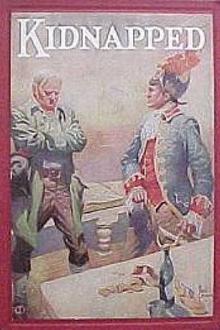The Reluctant Coroner - Paul Austin Ardoin (most romantic novels txt) 📗

- Author: Paul Austin Ardoin
- Performer: -
Book online «The Reluctant Coroner - Paul Austin Ardoin (most romantic novels txt) 📗». Author Paul Austin Ardoin
“Hey, Sheriff,” she answered, a little too much enthusiasm in her voice.
“Hey, Fenway,” he said. “Am I calling too late?” His voice cracked slightly. Was that nervousness?
“Nope. Just finished unpacking.” She pushed the folded cardboard flat and walked into the kitchen, grabbing the open beer on the counter.
“Can you be at City Hall at seven thirty tomorrow morning?”
Disappointment panged in her chest that he was calling about business—but why else would he be calling? “Oh—the appointment’s going through that early?”
“Not exactly.” McVie exhaled loudly. “You have to answer questions in front of the Dominguez County Board of Supervisors.”
Fenway stopped in her tracks, halfway to her bedroom. “You’re just telling me this now?”
“It’s been tradition for them to question any county appointee.”
She tried to keep the frustration out of her voice. “You could have mentioned this at any point earlier today. The pizza place. The coroner’s office. You helped me move furniture for three hours.”
“I thought, given the circumstances, we might be able to skip it.” McVie coughed lightly. “But one member of the board wouldn’t let it go. So they called a special session for tomorrow morning.”
Fenway shook her head. He must have found out about this earlier.
Just like her father, McVie wasn’t giving her a chance to say no. She’d already tried to wrap her head around why Walker was on that dark road that night. She’d already tried to assess motives. Asked questions. She already saw herself in the job. This wasn’t fair.
“Sheriff,” she said evenly, “people usually have more time to prepare for confirmation hearings.”
“I—It’s not a confirmation hearing.”
“Really? Sounds like they’ve got veto power.”
“Well—not as such. If they have grave concerns, they can discuss them with me.”
“But you’re expected to follow their recommendation. So it’s just semantics.” She drained her bottle of beer. She had taken too long to drink it and it was warm. “Do I need to be worried?”
“No.”
“Are you sure?”
“I just need to prep you. One councilmember is particularly wary of your dad. I can guess a few of the tougher questions you might get. Half an hour, forty-five minutes, tops.”
“Are you suggesting we prep tonight?”
“Let’s do an early breakfast. You liked Jack and Jill’s, right?”
“Yeah,” Fenway said grudgingly. The smoked salmon benedict had been fantastic.
“Can I pick you up at six?”
“You’re paying.”
“I know. I really didn’t think we’d need to meet them.” He paused. “So—see you at six?”
“You know, Sheriff, you can tell me uncomfortable stuff. Bad news. I can take it. But if I don’t have all the information to make my decision, I start losing my trust in people.”
He paused. “I’m sorry. I should have let you know it was a possibility.”
“Is there anything else I need to know that you’re not telling me? Was Walker sleeping with your wife? Did he convince you to make a bad investment? Kick over your sandcastle when you were a kid?”
“There’s nothing else. And this is just a formality. It might be uncomfortable, but it’s a formality.”
“I expect full disclosure from now on, Sheriff. Don’t hide things from me just because you think I don’t want to hear them. That’s a great way to piss me off.”
“Yeah, I can see that.”
“Glad I made myself clear. I’ll see you at six.”
Fenway gasped and sat up in bed, her heart pounding.
Her phone was beeping at full volume, and she fumbled for it in the darkness. She almost hit snooze before remembering she was meeting McVie for breakfast.
Reluctantly, she looked at the screen. 5:01 a.m. She swung her legs out from under the covers and padded her way to the bathroom.
She was ready a full five minutes before she saw McVie’s headlights on the road.
“You’re bright-eyed and bushy-tailed this morning,” he said when she opened the door of the cruiser.
“Aw, thanks, mister!” She curtsied to him playfully. “You going to tell me the early bird gets the worm too?”
“I was going to say you clean up good.” McVie’s voice was a little gruff. Fenway glanced down at her outfit. She didn’t consider herself especially dressed-up: knee-length gray wool skirt and matching blazer with a navy blouse. She was trying to look professional, down to her bone-colored flats, but maybe McVie was trying to make up for dropping the surprise on her last night.
No fog blanketed the town today, and the sky was brightening as they drove to Jack and Jill’s. Fenway was quiet in the car, still smarting from the miscommunication, but felt her mood lift as the server poured coffee into her mug.
After they ordered, McVie pulled out a manila folder and started reviewing the councilmembers with Fenway.
Of the five county supervisors, two were retirees, including the mayor of Estancia, Alice Jenkins. She was the elder statesman of the group, the first black judge appointed in Dominguez County. McVie said she was serving her fourth term as mayor. Fenway bit her tongue; her research the night before said it was her fifth.
The youngest member was Barry Klein, a forty-year-old optometrist—and the one who didn’t trust Fenway’s father. He’d run for coroner and lost, and everyone expected him to run again in November.
“Try to casually mention to Dr. Klein that you haven’t seen your father in years,” McVie said. “He’ll probably still try to hammer your background and probably your age. I’ll bet you a hundred bucks he tries to pivot to his own election campaign.”
“He should have just taken the appointment,” Fenway said.
“Walker had the gall to get murdered at an inopportune time for Dr. Klein,” McVie said, grinning.
“He always votes against anything related to Ferris Energy,” Fenway stated. “He’s going to do whatever he can to disrupt me.”
“The board knows he’s biased,” McVie said, eying her. “And how do you know how he votes?”
“There’s this thing called the internet.” Fenway smiled and sprinkled some hot sauce on her eggs. “So what are the other potential issues?”
“Well—not a lot, really.”
“Oh.” Fenway shifted in her seat. “This was a warning about Barry Klein, then.”
“He’s the one demanding this meeting,” McVie said. “I thought the other councilmembers would shut him down, but I guess they figured if they let him spout off now, he’d shut up later.” McVie scoffed. “As if Barry Klein ever shuts up.”
They arrived at City Hall early and had fifteen minutes to kill. In the lobby area outside the council chambers, Fenway took a seat on a wooden bench, and McVie paced in front of her. The sharp scent of pine cleaner tickled her nose. “Sit down,” she said. “You’re going to be on your feet for most of the meeting, aren’t you?”
“Probably too much coffee,” McVie said, but the worry lines at the corners of his eyes had deepened since the day before. Was it simply Klein’s reaction, or was there was something else he wasn’t telling her?
He passed in front of her, back and forth. This had to stop.
“You still going to concerts?” she asked.
“What?”
“Concerts. You told me about James Brown, but I didn’t hear about anything lately.”
“Oh.” McVie stopped pacing and sat on the bench next to her. “Amy and I went to a country show last month at the fairgrounds in P.Q. There were five or six bands there. Amy got into it, sang along to most of the songs.”





Comments (0)